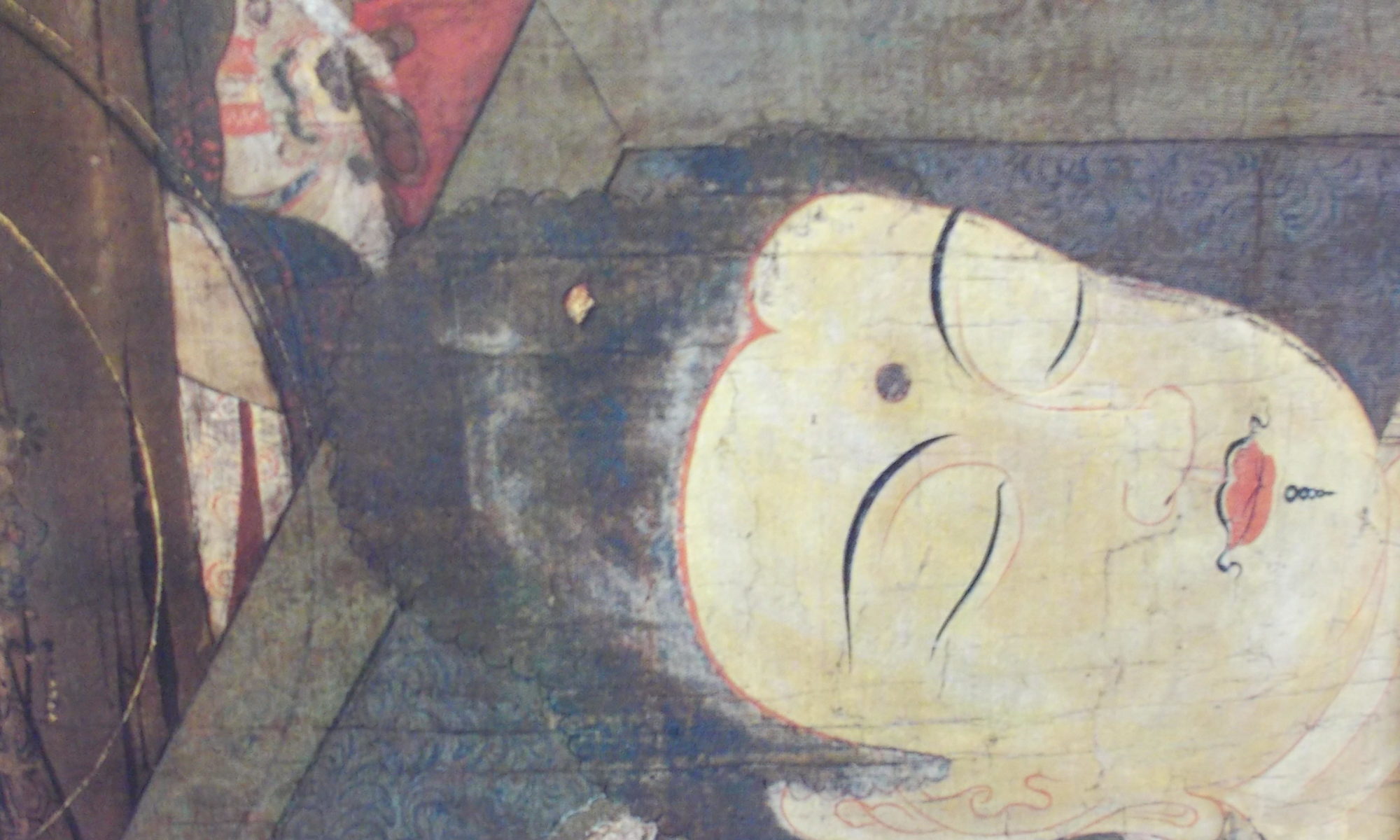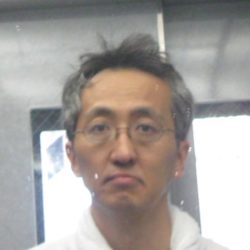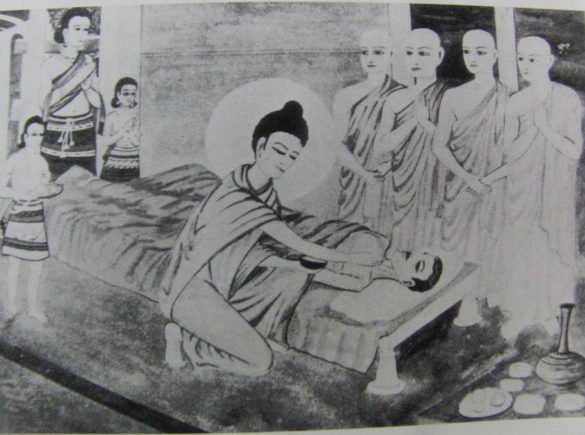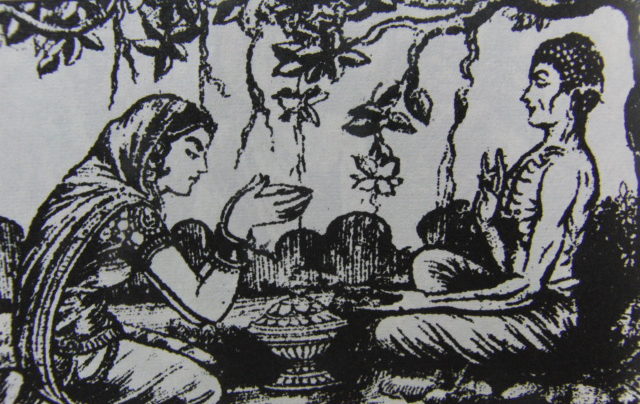The phenomenon of abandoning old people who are no longer useful in old age has been seen all over the world since ancient times, but Buddha opposed this trend and preached to take care of his parents.
“It’s fun to honor your mother in the world, and it’s fun to honor your father.”
“Whoever feeds his mother or father according to the law, he serves his father and mother, and in this world all sages praise him.
And after his death (for his merits) he will rejoice in heaven. ”
“Mother and father are also called Brahma, and they are said to be teachers.
You are the one to serve your children and the one who loves your descendants.
Therefore, wise men should salute and respect their parents by eating, drinking, clothing, flooring, lacquering, bathing, and washing their feet. ”
“Then, a righteous and good person will feel gratitude, know that he is indebted, will remember his past gratitude, and support his mother and father.
In ancient times he would do his duty to them (parents) as if he were indebted.
A child who protects the teachings, supports them, does not break the family line, has faith, and keeps the precepts should be praised. ”
“If we were fed by our parents, we should feed them.
Do what you ought to do for them.
Keep the family alive.
Inherit property.
You should also make offerings to your ancestors at appropriate times. ”
In the Buddhist scripture “Suttanipata”, the Buddha preaches as follows.
“Those who do not feed their old and decrepit mothers and fathers, and live in abundance, are the gates to ruin.”
Furthermore, in the Buddhist scriptures, the Pali Correspondence Scriptures (Sanyutta Nikaya), the Buddha preaches as follows.
A Brahmin who feeds his father and mother said to the Blessed One (Buddha Shakyamuni):
“Gotama (Buddha Shakyamuni).
I follow the rules and ask for food.
According to the rules, they ask for food and support their parents.
I am doing this, but am I doing my duty? ”
The Blessed One (Buddha Shakyamuni) said:
“Brahmin, indeed you are doing your duty in this way.
He who eats according to the order and feeds his parents according to the order will accrue many merits.
Whoever feeds her mother or father according to her law, by her service to her parents, is in this world. Wise men praise him, and after death he rejoices in heaven. ”
Hearing these words, the Brahmin said:
“It’s wonderful, Master Gotama.
That’s great. Gotama.
Lord Gautama, please accept me as a lay believer.
From now on, as long as I live, I will devote myself to you.”
In addition, in the Dhammapada and Udhanavamaga, the Pali Buddhist scriptures, the Buddha preaches the importance of non-injury and non-violence as follows.
“If you do harm to innocent people without doing anything, you will quickly encounter one of the following ten cases.
1. Severe pain
2. old age
3. bodily injury
4. Severe illness
5. Madness
6. Calamity from the King
7. Horrible tales
8. Death of relatives
9. Property loss
10. A fire burns his house
This fool will be born in hell after death. ”
In addition, in the Sanyutta Nikaya, the Pali Buddhist scriptures, the Buddha teaches about generosity and sharing:
“Those who are stingy in this world, who are stingy, who curse those who beg for stingy things, and who prevent others from giving, they are born in Hell, in the womb of animals, in the world of Enma.
Even if he was born as a human, he would be born in a poor and poor family.
Clothing, food, pleasures and games are hard to come by there.
Fools hope to get it in the afterlife, but they cannot.
In this world you have this reward, and after death you fall into a bad place.”
“If those who have attained human form in this world and are willing to share generously have faith in the teachings of the Buddha’s truth and have a fervent respect for the assembly of practitioners, they will was born in heaven and shines there.
Even if he were to become a human, he would be born into a wealthy family.
Clothing, food, pleasures, and games are readily available there.
Rejoice and enjoy the wealth that others have accumulated as if it were an altar.
In this world there is this reward, and after death you will be born in a good place. ”
Furthermore, the Buddha Shakyamuni preached as follows regarding nursing in the 40th volume of the Ritsuzo Sutra of the Pali Buddhist Scriptures, the Masuichi Agon Sutra.
“O monks, those who want to serve me (Buddha Shakyamuni) should take care of the sick.”
“Even if you (Buddha Shakyamuni) and other Buddhas of the past are to be held, there is no difference between the blessings bestowed on me (Buddha Shakyamuni) and the sickness (people) cared for (blessings).”
In addition, it is said that Buddha Shakyamuni himself was directly engaged in caring for sick people.
Furthermore, in the Sanskrit Sutra of the Ritsubu Sutra, nursing is listed as the number one of the Happukuda.
In other words, we can see how much importance is placed on caring for the sick in Buddhism.
In addition, in the 40th volume of the Buddhist scripture, the Buddha preaches the following about seven types of uke.
One day, the Buddha (Shakyamuni) preached that if one possesses the seven kinds of uke, he can be reborn under Heaven’s Taishaku (a good world or a good place).
What is Nanakinuke
1. Hold a memorial service for your parents.
2. Hold a memorial service for the respect of the family
3 Take gentle and gentle words and attitudes of humility
4 Leaving rough words
5 Leaving both tongues
6 Stop his stingy heart
7 Speak the truth




